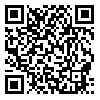BibTeX | RIS | EndNote | Medlars | ProCite | Reference Manager | RefWorks
Send citation to:
URL: http://jdn.zbmu.ac.ir/article-1-222-en.html
Introduction: Deploying affordable, accessible, and unofficial supportive forces, such as peers, is of great importance for management of type II diabetes. Thus, we conducted this study to investigate the effect of peer-based interventions on type II diabetes management. In this review, an online search was carried out to identify the studies published during 2000-2015 investigating the impact of peer-based interventions on diabetes management. The databases of PubMed, Science Direct, Google Scholar, SID, Magiran, and IRCT were searched using Mesh-based keywords of “peer”, “peer support”, “peer intervention”, “diabetes”, “chronic disease”, and “self-management” and the Persian words A total of 86 interventional full-text articles that had used peer-based interventions were retrieved. Finally, after skimming the titles and abstracts of these articles, nine studies were included for the final review. The studies were different on account of design, communication model, research duration, location (home or health centers), type of outcome, and peer intervention sessions with patients (intervals, frequency, and continuity). All the articles had a control group and some of them compared peer interventions with specialized personnel. Various peer communication models (six face-to-face and three telephone calls) were utilized. In all the studies, peers had improved outcomes (self-efficacy, clinical outcomes, quality of life, and self-management behaviors); however, in some studies no significant differences were noticed between the intervention and control groups. The findings showed that along with healthcare providers, peers can be effective in diabetes management. Nonetheless, the method of employing them must be further studied to achieve to the most effective model with constant practical principles.
Received: 2017/01/30 | Accepted: 2017/05/29 | Published: 2017/06/20
| Rights and permissions | |
 |
This work is licensed under a Creative Commons Attribution-NonCommercial 4.0 International License. |




